#mizuki kawashita
Explore tagged Tumblr posts
Text




#mission yozakura family#yozakura san chi no daisakusen#yozafam#ep21#anime#makoto kawashita#ai#ai yozakura#ai-chan#momo yozakura#mr mizuki#mizuki#anime edit#my edit#myedits#myfgifs#myfedit#myfgraphics#myfgraphic#myf anime spoilers#fyanimegifs#fyanimanga#anisource#anime gifs
19 notes
·
View notes
Text
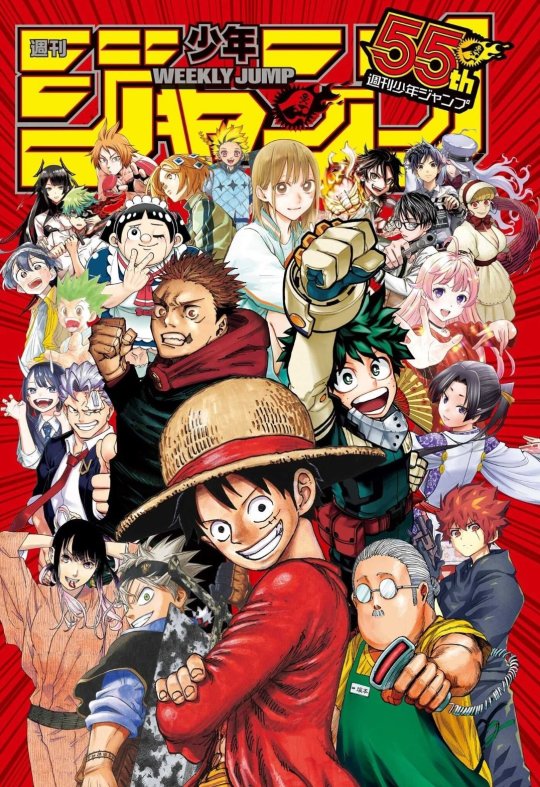
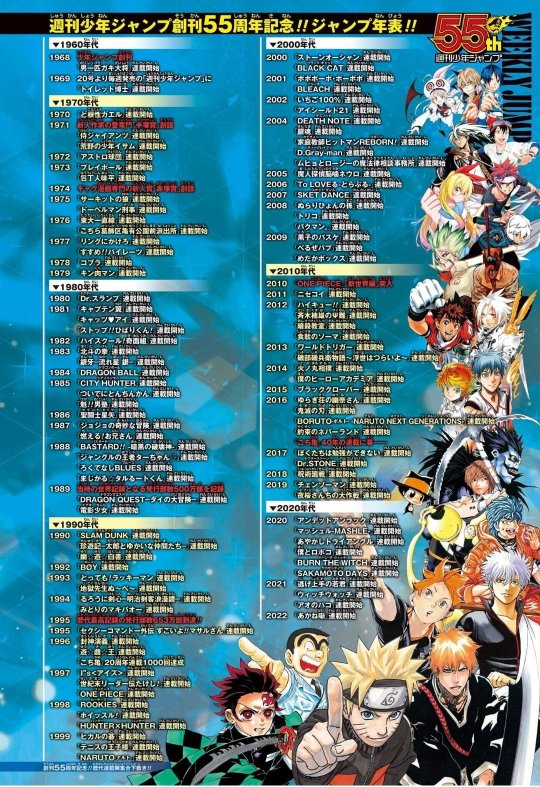
Weekly Shonen Jump 55th anniversary appendix in Weekly Shonen Jump 2023 issue #33
1968 Weekly Shonen Jump Issue #1 Otoko Ippiki Gaki-Daisho by Hiroshi Motomiya 1969 Dr. Toilet by Kazuyoshi Torii 1970 The Gutsy Frog by Yasumi Yoshizawa 1971 Tezuka Manga Award 1st Edition Samurai Giants by Ikki Kajiwara & Ko Inoue Boy of the Wilderness Isamu by Soji Yamakawa & Noboru Kawasaki 1972 Astro Kyudan by Shiro Tōzaki & Norihiro Nakajima 1973 Play Ball by Akio Chiba Hochonin Ajihei by Jiro Gyu & Jo Big 1974 Akatsuka Manga Award 1st Edition 1975 The Circuit Wolf by Satoshi Ikezawa Doberman Deka by Buronson & Shinji Hiramatsu 1976 Toudai Icchokusen by Yoshinori Kobayashi Kochikame by Osamu Akimoto 1977 Ring ni Kakero by Masami Kurumada Susume!! Pirates by Hisashi Eguchi 1978 Cobra by Buichi Terasawa 1979 Kinnikuman by Yudetamago 1980 Dr. Slump by Akira Toriyama 1981 Captain Tsubasa by Yoichi Takahashi Cat's Eye by Tsukasa Hojo Stop!! Hibari-kun! by Hisashi Eguchi 1982 High School! Kimengumi by Motoei Shinzawa 1983 Fist of the North Star by Buronson & Tetsuo Hara Ginga -Nagareboshi Gin- by Yoshihiro Takahashi 1984 DRAGON BALL by Akira Toriyama 1985 City Hunter by Tsukasa Hojo Miraculous Tonchinkan by Koichi Endo Sakigake!! Otokojuku by Akira Miyashita 1986 Saint Seiya by Masami Kurumada 1987 JoJo's Bizarre Adventure by Hirohiko Araki The Burning Wild Man by Tadashi Sato 1988 Bastard!! by Kazushi Hagiwara Jungle King Tar-chan by Masaya Tokuhiro Rokudenashi BLUES by Masanori Morita Magical Taluluto by Tatsuya Egawa 1989 Weekly Shonen Jump reaches 5.000.000 copies in circulation Dragon Quest: The Great Adventure of Dai by Riku Sanjo & Koji Inada Video Girl Ai by Masakazu Katsura 1990 SLAM DUNK by Takehiko Inoue Chinyuki by Man Gataro Yu Yu Hakusho by Yoshihiro Togashi 1992 Hareluya II Boy by Haruto Umezawa 1993 Tottemo! Luckyman by Hiroshi Gamo Hell Teacher Nube by Makura Sho & Takeshi Okano 1994 Midori no Makibao by Tsunomaru Rurouni Kenshin by Nobuhiro Watsuki 1995 Weekly Shonen Jump reaches 6.530.000 copies in circulation Sexy Commando Gaiden: Sugoi yo!! Masaru-san by Kyosuke Usuta 1996 Hoshin Engi by Ryu Fujisaki Yu-Gi-Oh! by Kazuki Takahashi Kochikame 20th Anniversary & Chapter 1000 1997 I's by Masakazu Katsura Seikimatsu Leader den Takeshi! by Mitsutoshi Shimabukuro ONE PIECE by Eiichiro Oda 1998 Rookies by Masanori Morita Whistle! by Daisuke Higuchi HUNTERXHUNTER by Yoshihiro Togashi 1999 Hikaru no Go by Yumi Hotta & Takeshi Obata The Prince of Tennis by Takeshi Konomi NARUTO by Masashi Kishimoto 2000 JoJo's Bizarre Adventure: Stone Ocean by Hirohiko Araki BLACK CAT by Kentaro Yabuki 2001 Bobobobo Bobobo by Yoshio Sawai BLEACH by Tite Kubo 2002 Strawberry 100% by Mizuki Kawashita Eyeshield 21 by Riichiro Inagaki & Yusuke Murata 2004 Death Note by Tsugumi Ohba & Takeshi Obata Gintama by Hideaki Sorachi Katekyo Hitman Reborn! by Akira Amano D.Gray-man by Katsura Hoshino Muhyo & Roji's Bureau of Supernatural Investigation by Yoshiyuki Nishi 2005 Neuro: Supernatural Detective by Yusei Matsui 2006 To Love Ru by Saki Hasemi & Kentaro Yabuki 2007 Sket Dance by Kenta Shinohara 2008 Nura: Rise of the Yokai Clan by Hiroshi Shiibashi Toriko by Mitsutoshi Shimabukuro Bakuman. by Tsugumi Ohba & Takeshi Obata 2009 Kuroko's Basketball by Tadatoshi Fujimaki Beelzebub by Ryuhei Tamura Medaka Box by Nisio Isin & Akira Akatsuki 2010 ONE PIECE New World Begins 2011 Nisekoi by Naoshi Komi 2012 Haikyu!! by Haruichi Furudate The Disastrous Life of Saiki K. by Shuichi Aso Assassination Classroom by Yusei Matsui Food Wars: Shokugeki no Soma by Yuto Tsukuda & Shun Saeki 2013 World Trigger by Daisuke Ashihara Isobe Isobee Monogatari by Ryo Nakama 2014 Hinomaru Zumo by Kawada My Hero Academia by Kohei Horikoshi 2015 Black Clover by Yuki Tabata 2016 Yuuna and the Haunted Hot Springs by Tadahiro Miura Kimetsu no Yaiba by Koyoharu Gotouge BORUTO by Mikio Ikemoto & Ukyo Kodachi The Promised Neverland by Kaiu Shirai & Posuka Demizu Kochikame 40th Anniversary and Serialization End 2017 We Never Learn by Taishi Tsutsui Dr. STONE by Riichiro Inagaki & Boichi 2018 Jujutsu Kaisen by Akutami Gege
2019 Chainsaw Man by Tatsuki Fujimoto Mission: Yozakura Family by Hitsuji Gondaira 2020 Undead Unluck by Yoshifumi Tozuka MASHLE by Hajime Komoto Ayakashi Triangle by Kentaro Yabuki Me & Roboco by Shuhei Miyazaki BURN THE WITCH by Tite Kubo SAKAMOTO DAYS by Yuto Suzuki 2021 The Elusive Samurai by Yusei Matsui WITCH WATCH by Kenta Shinohara Blue Box by Kouji Miura 2022 Akane Banashi by Yuki Suenaga & Takamasa Moue
#Weekly Shone Jump#One Piece#Dragon Ball#Naruto#Slam Dunk#KochiKame#Demon Slayer#Bleach#JoJo's Bizarre Adventure#Fist of the North Star#My Hero Academia#Hunter x Hunter#Jujutsu Kaisen#Yu Yu Hakusho#Kinnikuman#Rurouni Kenshin#The Prince of Tennis#Rokudenashi Blues#Gintama#Haikyu!!#manga#long post#late post
217 notes
·
View notes
Text





Kawashita Mizuki artwork
#y2k#nostalgia#y2kcore#cyber y2k#2000s#anime#anime aesthetic#2000s web#anime art#anime and manga#anime fanart#y2k moodboard#y2k nostalgia#y2k aesthetic
14 notes
·
View notes
Photo
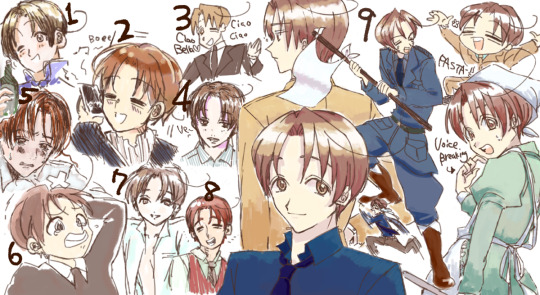
art style from
1 hidekazu himaruya(hetalia 2008)
2 hidekazu himaruya(hetalia 2023)
3 yoshito hirai (crayon shin-chan)
4 tastuki fujimoto(chainsaw man)
5 masakazu kastura(I’’s)
6 yoshihiro togashi(hunter x hunter)
7 mizuki kawashita(strawberry 100%)
8 tastuya endou(spy x family)
9 me
21 notes
·
View notes
Photo

Today in Manga History
October 31st, 2000
Lilim Kiss begins serialization in Weekly Shonen Jump
Written and illustrated by Mizuki Kawashita
26 notes
·
View notes
Photo

Shonen Jump 50th anniversary announcements: Hunter x Hunter's return, new one shots to be published and teaser for the Jump retro style spines.
Next year Shonen Jump will be releasing one shots by: - Tite Kubo - Naoshi Komi - Kyosuke Usuta - Hiroshi Shiibashi - Mitsutoshi Shimabukuro - Ryuhei Tamura - Nisio Isin - Mizuki Kawashita
#manga#weekly shonen jump#Hunter x Hunter#Tite Kubo#Naoshi Komi#Kyosuke Usuta#Hiroshi Shiibashi#Mitsutoshi Shimabukuro#yuhei Tamura#Nisio Isin#Mizuki Kawashita
11 notes
·
View notes
Text
Creators of Bleach, Nisekoi, Beelzebub, Toriko, and More to Pen One-Shots for Shonen Jump
The first 2018 issue of Shueisha’s Weekly Shonen Jump magazine has announced that, to commemorate the magazine’s 50th anniversary in 2018, the magazine will publish new one-shot manga by well-known manga creators. The issue revealed that the following creators will publish one-shots in 2018 issues: NisiOisin and Mizuki Kawashita, one-shot in the combined second and third issue on December 11,…
View On WordPress
#Hiroshi Shiibashi#Kyosuke Usuta#manga#Mitsutoshi Shimabukuro#Mizuki Kawashita#Naoshi Komi#NisiOisin#Ryuhei Tamura#Tite Kubo#Weekly Shonen Jump
0 notes
Photo


36 notes
·
View notes
Text
OPM Manga Art Study #1 - Murata's Influences
The first thing I wanted to do when conceiving this project is to form a baseline of sorts. As expected, I can't directly dive into OPM if I want to understand Murata's approach going into it. As such, this first entry is more of a reading list. HOPEFULLY I'll get to actually breaking down illustrations next time.
Naturally, as a professional artist, Murata has spent his life accumulating influences from his own personal idols. It's something he pushes other artists to do as well.
Boy, are there some big names on his list. If I went into each of them, they would each warrant a dedicated series. Unfortunately, I do not have the time for that. So, think of this as a breadcrumb trail to go and research on your own. I have skimmed over these artists' careers and a common factor I've noticed is that their success was marked by their deviation from tradition. Make use of that as you like.
After the cut, I discuss the book and artists that helped Murata get to where he is today, and the sequel that he wrote later on.
First up: Hetappi Manga Kenkyūjo (鳥山明のヘタッピマンガ研究所/Akira Toriyama's Clumsy Manga Laboratories) by Akira Toriyama & Akira Sakuma (1985)
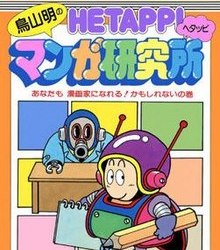

Murata sites this as the book that got him started on manga. Written by Dragon Ball's creators, it predates Scott McCloud's Understanding Comics by a decade. Like McCloud's book, it uses the medium of comics/manga to explain that medium. It seems to be targeted at a young audience and covers some basic drawing tips as well as comic storytelling fundamentals. It makes some suggestions for tools when working in traditional media, as most mangaka have up until recently. I have yet to find a complete copy to review, and unfortunately nothing that has been translated into English. I have found partial copies in Japanese, French, and Portuguese(?).
The 2nd book in the Hetappi series was written by Murata himself. I can't help but feel happy for him as he describes, in the forward, how honored he is to write the successor to the book that started him off on his career.
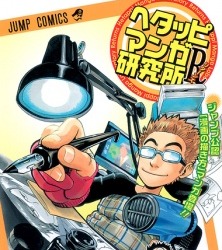
Hetappi Manga Kenkyūjo R (ヘタッピマンガ研究所R) (2008-2010) was completed 2 years before the OPM manga was published, during the last years of Eyeshield 21. It follows the artistic pursuits of Murata's restless editor, Saito, as he badgers Murata for the secrets to his success as a mangaka. This book (henceforth calling it HMKR) is available in Japanese on amaz*n, though half of it has been translated to English by reddit user DarkMeROTMG. I reached out to them recently and although it isn't up as of this writing, the rest of the translation may be coming in the not-too-distant future. I'm really looking forward to it, as the 2nd half of the book - according to the table of contents - covers more abstract concepts such as character design and how manga get published.

Like its predecessor, it covers the standard tools for traditionally made manga, though Murata acknowledges that in the future, many newer artists may work completely in digital media. (He was right)
I'm one such artist, but I'm still noting the effects of different tools because it will doubtless be important for understanding how he achieves certain effects in his work. Software like Clip Studio Paint, which has become an industry standard, has gone far to simulate them, making the transition a little easier.
HMKR is a goldmine for getting important insights into Murata's creative process and the strategies for mangaka in general. Just reading through it gives so many breadcrumbs to look into it's overwhelming. This book alone features: Mizuki Kawashita, Yusei Matsui, Shimabukuro Mitsutoshi, and Yoshihiro Togashi - each powerful mangaka in their own right. Murata sets a good example by roping these folks in whenever he feels that something is not his field of expertise. Among these, amusingly, includes drawing women and designing characters for a story.
"I have to do everything I can to become better! That's it. I did not hold myself to any limits on what not to do from the beginning. And I worked hard without worrying about what other people think of me." -Yusuke Murata, HMKR
There isn't much more I can say about HMKR that it doesn't explain much better itself, so - go read it and keep an eye out for the full translation. I have a lot of thoughts, particularly on how women are discussed, but I'd rather talk about those in more dedicated posts.
Another resource Murata uses according to this livestream transcription is certain boy-love (BL) manga for anatomy references. He doesn't say which ones, unfortunately, but it's easy to see how he works in that charm for his male characters. If anyone reading happens to know, please share with the class... 👀
Since this series focuses on OPM specifically, I can't list artists that influence Murata without mentioning ONE himself. By some stroke of fate, these men independently became mutual fans of one another's work. According to a Sugoi Japan interview, ONE's work affected Murata so deeply that he decided he would work with him at any cost while resting in what could have been his deathbed.
"...Each character has their own soul. ...When I pulled that all-nighter [to read the webcomic], I realized that this work has enough power to rival the best of the pros."
Murata has meticulously studied what makes ONE's designs so charming and has gone to great lengths to make sure those ideas translate into the manga. In the same interview he emphasizes how understanding the core of what makes a character appealing is essential to imagining the kinds of scenes you can draw them in. He has essentially made a professional career out of doing fan-manga and I respect his power all the more for it.
I might elaborate on the core appeal of OPM as Murata saw it in ONE's works in its own post, but if I have to boil it down to some key ideas going from ONE's interviews... A theme that comes up a lot is the contrast of Saitama's simplicity with the rest of the world he lives in. Visually and in personality, he is a simple solution to a bleak world's complicated problems. I haven't found any such sketches, but Murata has said he went over the first chapters of OPM many times, up to Boros' fight, before he was satisfied with the way Sai's face looked.
As I study, I'm reminded - not for the first time - why being a comic artist is a full-on career. I'm a hobbyist chipping at a mountain of knowledge for some shiny kernels I can use. I promise that if I've missed something, it's not for lack of trying or care - there is just SO MUCH. I've come into this with a little bit of background, but it really comes up short of those who have made it their primary field. There's so much that I have to neglect in the interest of time so that I can get this out for people to use rather than in some years as a thesis. I hope that if anyone reading this wants to do comics as their job that they'll keep digging for more.
SPECIAL THANKS
@nenrikid0 - for finding the livestream snippet and the saucy examples
@the-nysh - for reminding me to check out the livestreams in general - I'll do a deeper dive when I can
REPLIES TO REPLIES
I really don't know how to do this properly on tumblr so I'm just gonna save a section for this
@ganet '...It probably helps to study his previous works? ...'
For certain! Though I don't think I'll get to it for a while. Even just trying to list his most important influences yielded this whopper.
Please share any additional thoughts on this, or the formatting or anything, in the replies and I'll answer as I can, maybe in the next entry!
100 notes
·
View notes
Text

#mission yozakura family#yozakura san chi no daisakusen#yozafam#anime#official media#official art#ai-chan#ai yozakura#ai#mr. mizuki#mizuki#mr mizuki#makoto kawashita#anime art#dvd cover#blu ray cover#silver link#silver link.#dvd/blu ray art
3 notes
·
View notes
Text
Jumputi Series #1: Anedoki
Going in alphabetical order, we start with Anedoki, a romantic comedy manga written and drawn by Mizuki Kawashita, better known for Ichigo 100% and perhaps Hatsukoi Limited.
Synposis: Anedoki follows 13-year-old Kouta Ochiai who meets a mysterious girl (Natsuki Hagiwara) who ends up taking care of Kouta when his father is transferred because of work.

Characters: (So far only two have been shown, not yet added to the game yet)
Natsuki Hagiwara-17-year old girl Kouta randomly meets before she ends up being the one to take care of him when his father is transferred for work.
Kanade Sakurai-A classmate of Kouta who becomes jealous of Natsuki after losing the center of attention to her at school. After an incident with some high school students where Kouta ends up protecting her, she develops feelings for him.
This series is said to be added in 2023 during a festival dedicated to the author Mizuki Kawashita.

2 notes
·
View notes
Photo

Atashi no Idol by Kawashita Mizuki
7 notes
·
View notes
Photo
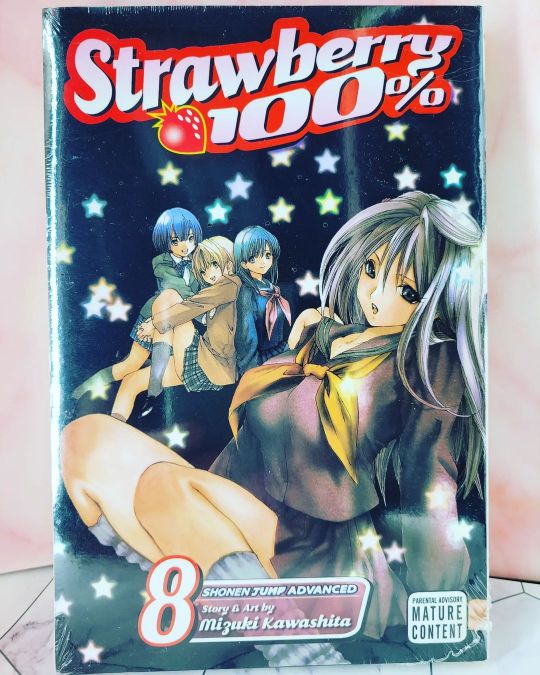
Today's eBay spotlight (Seller ID: RadioIndy)! Strawberry 100% V.8 manga from 2009! Classic harem hijinks from Mizuki Kawashita and Viz Media! #comics #manga #strawberry100percent #mizukikawashita #2009 #vizmedia #TranslatedManga #ComicCollector #comicdealer #VintageManga #auctions #ebay #RadioIndy #DownsizingMyCollection #EverythingMustGo #BuyMyStuff #PandemicHustle #Fujoshi4Life https://www.instagram.com/p/CdioiYjLuAh/?igshid=NGJjMDIxMWI=
#comics#manga#strawberry100percent#mizukikawashita#2009#vizmedia#translatedmanga#comiccollector#comicdealer#vintagemanga#auctions#ebay#radioindy#downsizingmycollection#everythingmustgo#buymystuff#pandemichustle#fujoshi4life
2 notes
·
View notes
Photo

The Dream
#personal#want to find a girl like that#i can just look at her and know#manga cap#mangacap#akane-chan overdrive#kawashita mizuki
1 note
·
View note
Text
La revista Jump GIGA finalizará su actual “temporada” en julio con el final de Ichigo 100% East Side Story
La actual temporada de la revista comenzó su publicación en abril del año pasado

La tercera edición de la revista Jump Giga de Shueisha reveló que la revista finalizará su actual "temporada" en su cuarta edición a la venta el 28 de julio. La actual temporada de la revista fue lanzada el 28 de abril, y fue planificada para publicarse por cuatro ediciones.
La primera “temporada” de la revista fue lanzada en julio del año pasado con la revista Shonen Jump NEXT!! de Shueisha cambiando su nombre a Jump Giga para una publicación de cuatro ediciones. La edición final de la primera temporada de la revista se puso a la venta en octubre.
La cuarta edición de la actual temporada de la revista publicará el capítulo final del Manga Ichigo 100% East Side Story, la secuela del Manga de Ichigo 100% popr Mizuki Kawashita. El Manga fue lanzado con la segunda temporada de la revista Jump Giga el pasado 28 de abril. Los Manga de Hikuma no Te de Natsuki Hogami y Exoarts de Hirokazu Yasuhara también finalizarán en la edición.

Kawashita lanzó el Manga de Ichigo 100% en la revista Weekly Shonen Jump en 2002, y lo finalizó en 2005. La serie fue puesta a la venta en 19 tomos recopilatorios. La serie inspiró su propio Anime para televisión, una serie de cuatro OVAs, y un especial de Anime.
El Manga Hatsukoi Limited de Kawashita también inspiró un Anime para televisión en 2009.
La edición final de la revista Jump Giga también publicará dos Manga one-shots, incluyendo un Manga one-shot spinoff de Samon wa Summoner por Shun Numa y el Manga "Hoshikuzu no Sorakiru" de Toshiaki Iwashiro (Psyren).
6 notes
·
View notes
Text
Mizuki Kawashita to Launch Ichigo 100% Sequel Manga in April 2017
Mizuki Kawashita to Launch Ichigo 100% Sequel Manga in April 2017
This year’s 17th issue of Shueisha’s Weekly Shonen Jump magazine is revealing that manga creator Mizuki Kawashita is launching a sequel to her Ichigo 100% (Strawberry 100%) manga titled Ichigo 100% East Side Story in Shueisha’s Jump Giga magazine on April 28, 2017. Kawashita launched the Ichigo 100% (Strawberry 100%) manga in Weekly Shonen Jump in 2002, and ended it in 2005. The series ran for 19…
View On WordPress
0 notes